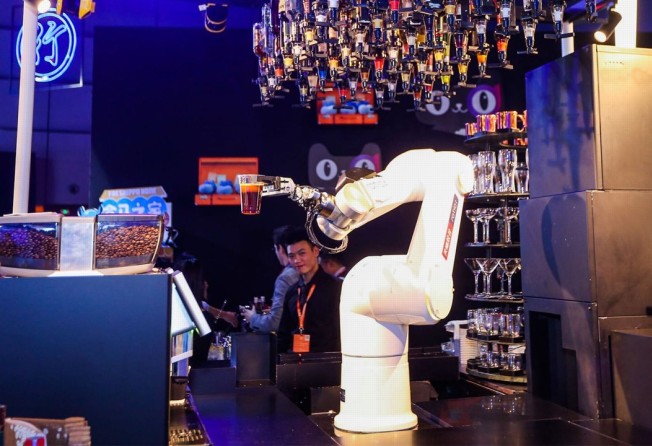Robotic bartenders and smart hotels: Alibaba’s vision of future consumption
- The robotic arm takes orders via smartphone, where customers scan a QR code, select drinks off a menu and pay via mobile payments service Alipay
- By using algorithms and big data, TMIC is able to help global brands create products that appeal to Chinese consumers

It was half-past midnight on November 12, and Alibaba Group Holding had just announced a record-breaking US$30.8 billion in e-commerce purchases for Singles’ Day 2018. Instead of joining the steady stream of reporters filing out of the media centre to return to their hotels, I was standing in front of a robotic arm that was twisting itself from side-to-side as it prepared the cocktail I just ordered.
I had scrolled through a list of drinks available via a mobile menu – which included a gin and tonic and a hot toddy – and settled on a lychee martini because the (human) bartender manning the exhibit said it was the drink the robotic arm had prepared for Jack Ma, Alibaba’s co-founder and executive chairman, about an hour ago. If a lychee martini was good enough for China’s richest man, it was good enough for me.